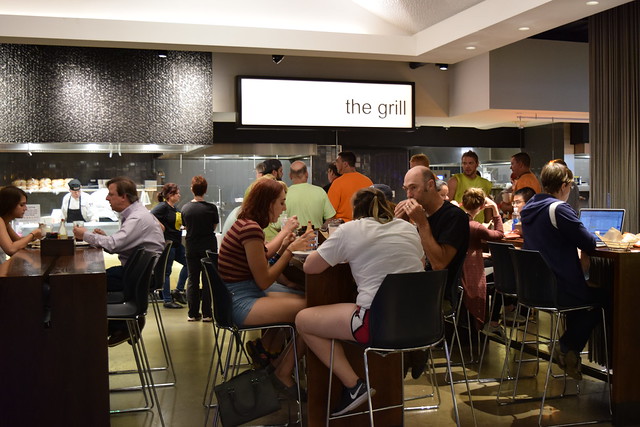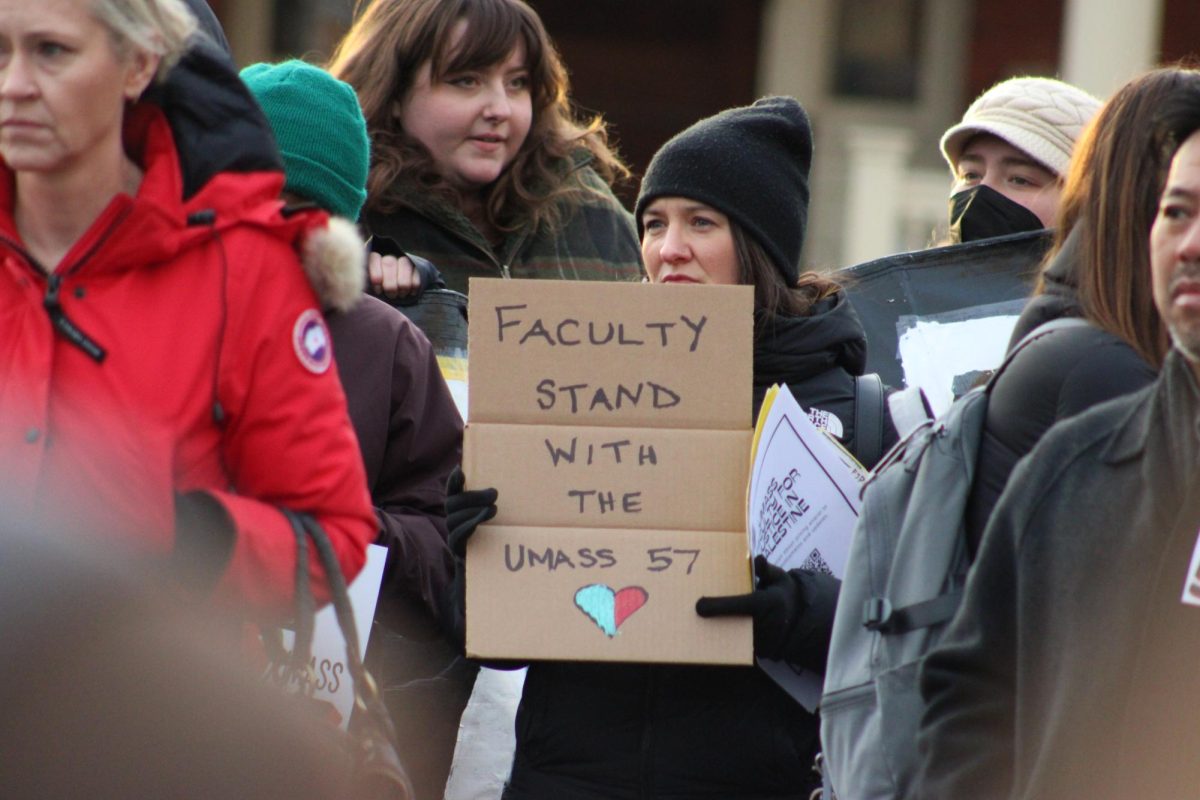When you think of the University of Massachusetts, what do you think of? The school with the No. 1 dining in the country? Lobster and steak on Halloween? Food trucks that travel around campus, catering to each student’s need?
What if we told you that 23 percent of undergraduate students skipped a meal because they did not have enough money to buy food, and that 22 percent of undergraduate students worried that their food supply would run out before they had money to purchase more? These statistics were reported by the 2015 Student Life Survey, four years ago. Since then, meal plan prices, food prices and school supply prices have only increased and become less accessible to students facing financial stress. In this same survey, 72 percent of undergraduates expressed feeling stress often or sometimes surrounding financial needs.
Food insecurity is the uncertainty or lack of access to the means (i.e. finances or transportation) to obtain a nutritious meal. According to the 2018 Student Food Insecurity Forum at UMass, throughout the United States, college students across the country experience food insecurity on a variety of levels, from 20 to 40 percent. Food insecurity stems from multiple different causes, such as the rising costs of education, social stigma, poverty and a decrease in funding for nutrition programs.
According to the same forum, a lack of access to a nutritious meal can have harmful effects on student success. Some consequences include having to choose between purchasing meals over educational materials, having to work long hours to pay for meals instead of studying, an inability to get adequate sleep and an inability to focus on academic work. It is unfair for students to have to face these problems, so finding a solution to food insecurity on campuses is the first step toward improving academic marks.
While food insecurity is a reality for many students, social media tells a different story showcasing pictures of fancy açaí bowls, sushi platters and avocado toast. Many students do not think twice about posting these photos or about the effect it might have on others. Touting these expensive foods could foster a deeper feeling of shame for those who do not have the means to purchase food throughout the week, much less these luxuries.
This year, Challah for Hunger, as a part of the Campus Hunger Project, partnered with Residential Life at UMass to bring awareness about the issue and prevalence of food insecurity on college campuses. We did this by creating lesson plans for Residential Assistants to educate their residents through April bulletin boards on food insecurity. These boards also consist of resources on and off campus for students in need, as well as students who want to help. However, even with these educational tools there is still a barrier to accessing these resources for many students: the shame and stigma surrounding being food insecure.
Attending a school that continues to raise the cost of meal plans, in addition to seeing constant social media posts about trendy foods, can instill enough insecurity and shame in a student that they might not reach out even with resources presented to them. Consider this: a student has run out of meal swipes for the semester, and although they have seen advertisements for the student food pantry, they are too anxious about running into people they know on their way there. This anxiety would not be present if the shameful ideation around food insecurity was absolved.
It is our responsibility to continue the conversation about the subject of food insecurity on college campuses. Talk to your friends. Continue to protest rising costs of meal plans. Get involved with the many resources available on and off campus. Take action and make your peers feel comfortable in every situation.
Grace Sternklar and Samantha Price
Campus Hunger Cohort Members, Challah for Hunger



















Tyler Durden • Apr 25, 2019 at 1:29 pm
More fake news pandered by the far left of this campus. Not only is that study fatally flawed, but it is funny the detailed polling information is nowhere to be found. I’d say at the very most 5% of students have to worry about their next meal. Not 1 in 4. There’s a war going on for your mind.
amy • Apr 25, 2019 at 11:28 am
If you skipped a meal because of “food insecurity” then that student is likely an idiot. Perhaps that is why they are starving. Let’s say they have no income or a job.
They can get food stamps, they can go to multiple food pantries and they can go to free meals that are available everyday in amherst and northampton and other places.
If they are hungry it’s their own fault. The organizers are probably just trying to exploit these students to push their political ideology (probably radical left or socialists) instead of actually helping them by giving them a note card with the information I just detailed.